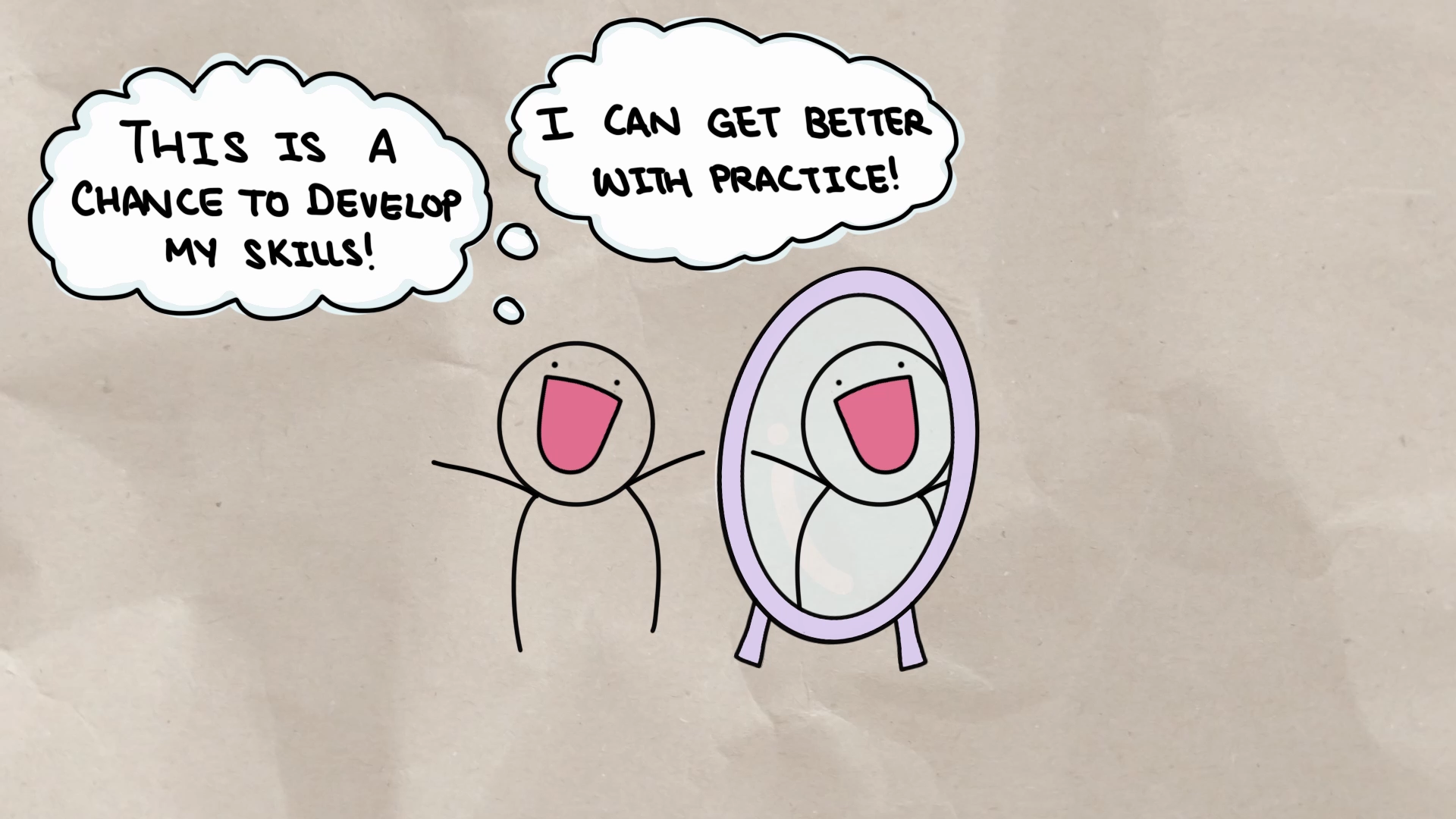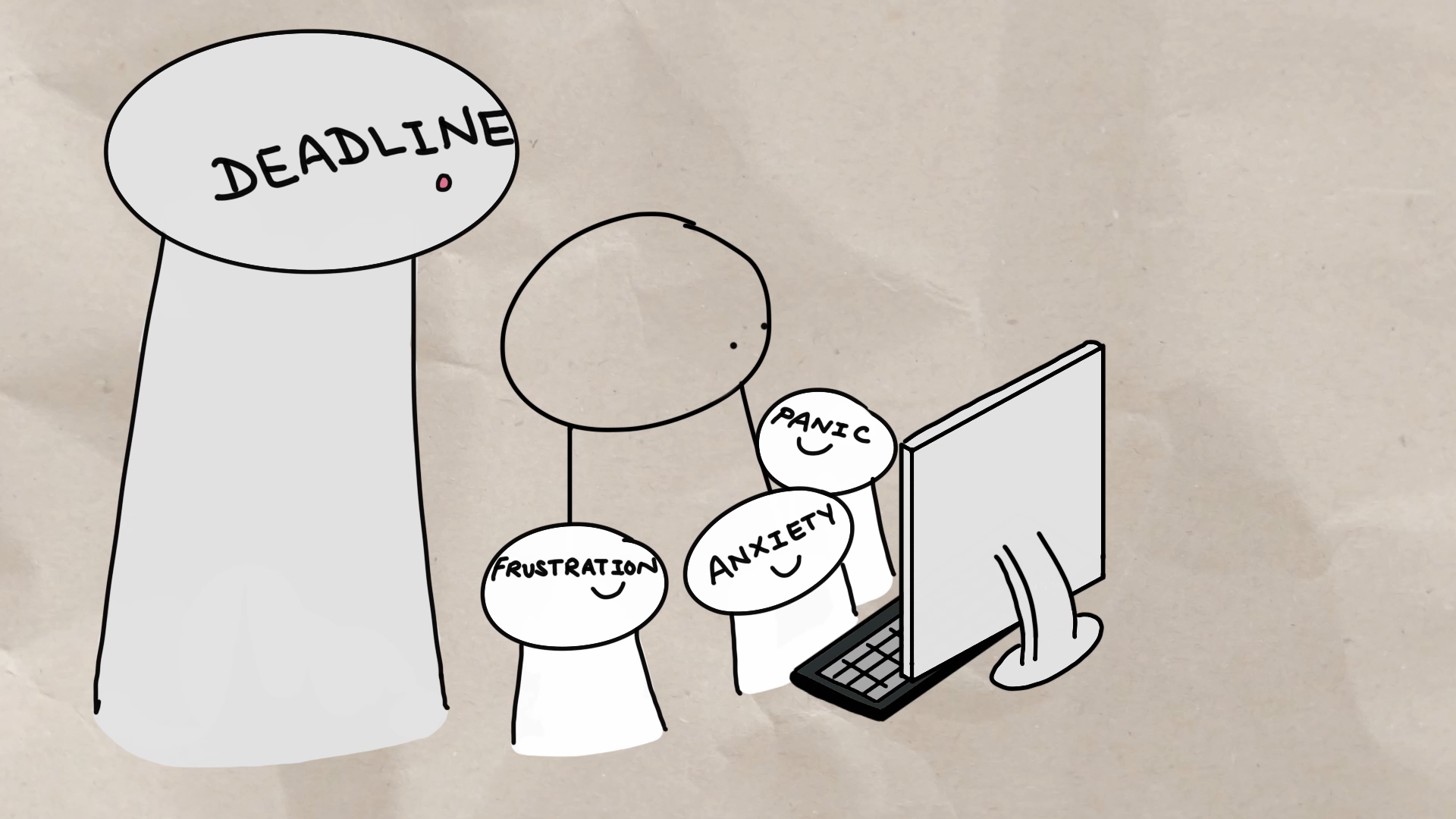Differentiate between self-efficacy and self-confidence
You've been working with your teammates on your self-efficacy levels. You now have a better idea of the direct correlation between your self-efficacy and your ability to persevere and succeed in a technology workspace. You want to explore the difference between confidence and self-efficacy. This knowledge will help you better understand why your team is struggling with the presentation, even though you're all confident people.
What is self-confidence?
Self-confidence is your belief or trust in yourself. We sometimes describe ourselves as confident or less than confident. When you're a confident person, you're positive about yourself and trust your capabilities in general. You have a clear idea about your ideas and beliefs. You know the path you want to take in life and how to get there. But did you know that self-confidence and self-efficacy are two different things?
How self-efficacy differs from self-confidence
You could be a confident person but still lack self-efficacy in certain areas. We talk about self-efficacy in specific areas such as math, programming, art, or music, rather than in a general sense. In contrast, self-confidence is more about your general belief in yourself.
As a confident person, you could have low self-efficacy in certain tasks. These tasks could be debugging code, creating documentation, or interacting with team members on a virtual call. You could also have varying degrees of self-efficacy with the same task.
For example, when you're preparing for the coding competition, you have several meetings to discuss and fine-tune your code. You have high self-efficacy when you share your code and explain its logic to your teammates. But when you present your code to a supervisor, you're anxious and question your abilities. You fear that your supervisor, who's much more experienced, might find many flaws in your code and stop respecting you.
Important
Your opinion of yourself and your abilities can have a profound impact on your progress and success.

Self-efficacy and being a leader
Many people struggle to think of themselves as leaders because they might still be learning so much themselves. As a leader or manager, you'll be challenged to learn and grow as you support others. The skills you'll learn will help you during future interviews and roles. Being confident in your ability to guide others in their computer programming is a different skill set than learning programming yourself.
When you work on improving your self-efficacy, you can be a better leader. You can improve your self-efficacy by gaining practice and feedback on your progress. You might still be developing your self-efficacy in a particular programming area. Use your own learnings to engage with your learners, students, or peers to overcome obstacles together. Work on your own self-efficacy and that of the group, and remember that you're all learning.
Tip
Remember that you might not always have all the answers. With honesty, bravery, and a growth mindset, you can help someone shift from thinking "I don't know if I can succeed in computer science" to "I can do this!"
Self-efficacy and working in computer science
Low self-efficacy is detrimental in many settings, but especially in computer science and technology. Computer science is more than programming. It's about problem solving under constraints, with the goal of automation and resource optimization. Low self-efficacy stops you from taking ownership over your problem-solving process. This in turn, stops you from putting in your best effort, whether you're writing code, debugging it, or engaging with diverse teams.

When you have low self-efficacy in computer science, pause and remember that great programmers are made, not born. They work their way through many trials, learn from their mistakes, and persevere. Exploring and learning how to mitigate discomfort is important for:
- Learning computer science.
- Succeeding in a career choice.
- Navigating life challenges.
- Reaching your full potential.
Important
Failure is a springboard for growth.